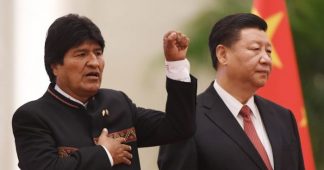By Frédéric Simon
Nov. 9, 2020
While Europe is rapidly catching up with China on investments into batteries for electric cars, it is still lagging behind when it comes to securing supplies of the critical raw materials that are needed to produce them.
Since the launch of the “European battery alliance” in 2017, the EU has made a leap forward in its quest to develop a full battery manufacturing value chain.
Investments in the EU battery sector reached €60 billion last year, while China invested only €17 billion, EU commissioner Maroš Šefčovič told EURACTIV in a recent interview. This year, Europe has so far invested €25 billion – again twice as much as China, he noted.
“In terms of investment levels in Europe, we probably have caught up,” says Andrew McDowell, the European Investment Bank’s vice-president responsible for economics and energy. According to him, there has been “a transformation in the level of ambition” in Europe since the battery alliance was launched in 2017.
“It’s not just about catching up anymore, it’s about Europe taking a leadership position in this industry,” McDowell told reporters during an online briefing in late August.
But the catch up is not over yet. Europe’s Achilles Heel is at the start of the value chain, where raw materials are mined and processed, according to Peter Carlsson, the CEO of Swedish battery maker Northvolt.
“We’re building plants but they need to be supported by raw materials, components and suppliers of equipment,” Carlsson told journalists at the August online briefing.
Northvolt is currently constructing Europe’s first battery gigafactory in northern Sweden, and a second site is planned in Germany following a deal signed with carmaker Volkswagen in July.
“Today, as we’re starting up the factory, we will still be dependent on a lot of suppliers from outside Europe,” Carlsson said, citing raw materials and components as part of a wider battery “ecosystem” that he says should be promoted in Europe.
“This is where we really need to continue strengthening the European ecosystem,” Carlsson said. “It’s going to require focus and investments.”
Continue reading at www.euractiv.com











